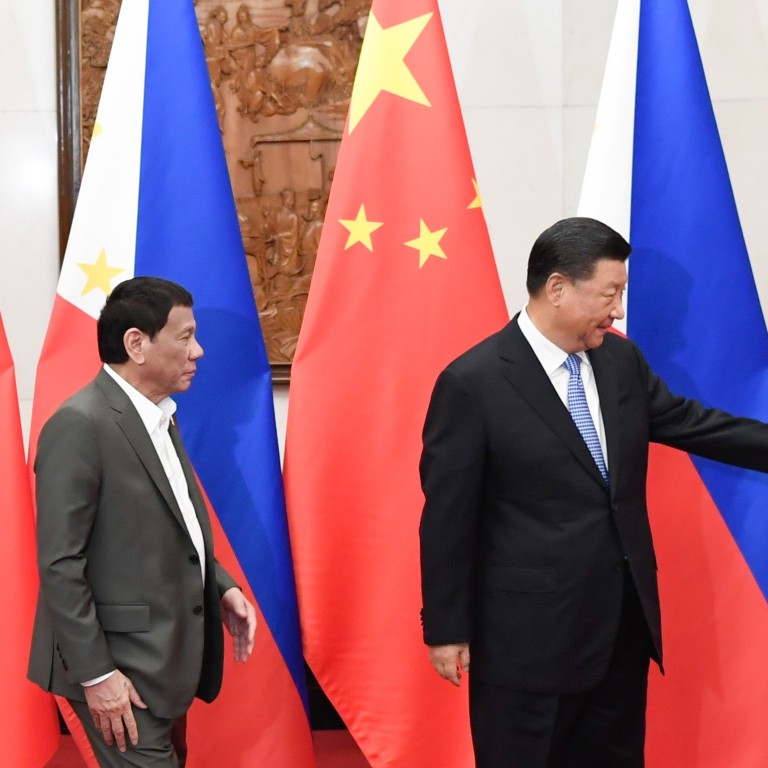
Philippines must be certain its military’s telecoms deal will not let in a Chinese Trojan horse
- Contract to install equipment in military facilities awarded to state-owned China Telecom in joint venture with an ally of President Rodrigo Duterte
- Defence secretary should be satisfied Beijing could not intercept or sabotage sensitive communications before giving final approval
“Do not trust the horse, Trojans. Whatever it is, I fear the Greeks even bearing gifts,” warned Laocoon, the priest of Troy. In today’s Philippines, many are wondering whether they are letting through a proverbial Trojan horse by welcoming Chinese telecommunications infrastructure.
Their fears will hardly have been eased by Delfin Lorenzana, the Philippine Defence Secretary, saying after the deal’s announcement that he had known nothing about it. Lorenzana has the final say on whether it proceeds.
The Beijing-friendly Rodrigo Duterte administration has insisted that the deal is both safe and standard. But short of cancelling the agreement, the Philippine government and military should strengthen cybersecurity measures and monitoring to reassure the public and allies about the security of its communications.
Until recently, Philippine Long Distance Telephone and Globe Telecom effectively cornered the US$5.2 billion telecom market. Since coming to power in 2016, however, Duterte has vowed to shake up the industry by soliciting China’s help.
Restrictions on foreign ownership in critical industries meant China Telecom had to form a joint venture with a local counterpart – namely Uy, who hails from Duterte’s hometown of Davao.
Despite vehement criticism in the Philippine Senate and media and from the public, including serious accusations of unfair bidding procedures, Duterte approved Mislatel in July as the country’s newest telecoms player.
Given that it benefited a key ally of the president as well as China, Duterte’s main strategic partner, it is possible that a successor could challenge the decision in court. This happened in the case of Chinese infrastructure deals during Gloria Macapagal Arroyo’s presidency that were halted in court because of bidding anomalies.
With Duterte’s backing, Mislatel’s franchise approval was a foregone conclusion – although Mislatel has maintained its bid was based on its competence and rejected any suggestion of preferential treatment.
The deal with the AFP, however, caught many by surprise, especially given the American-trained Philippine military’s historical antipathy towards Beijing. Under the new agreement, Mislatel is expected to set up communications, electronics and information equipment in military facilities.
The AFP’s Chief of Staff General Benjamin Madrigal downplayed security concerns by maintaining that the deal “guarantees that the devices, equipment and/or structures installed at the site provided by the AFP shall not be used to obtain classified information”.
China Telecom’s move into Philippines faces legal battle
But there are serious concerns over whether the Philippine government, especially under a Beijing-friendly presidency and considering China’s technological sophistication, has the capacity or wherewithal to guard against any vulnerability.
Vice-President Leni Robredo warned that “a number of activities [have] shown [China’s] goal here is information-gathering”. Opposition stalwart Senator Francis Pangilinan asked: “Why build these telco towers inside camps in the first place?” He said doing so “raises fears of electronic espionage and interference, given the record of some Chinese firms for engaging in this illegal activity”.
The Mislatel-AFP deal could give the Chinese government strategic leverage through the potential capacity to monitor, manipulate and sabotage the Philippines’ defence-related communications and intelligence-sharing with allies such as the United States. That possibility risks untethering long-standing security ties with the US and provoking a backlash at home.
Critics have highlighted China’s national intelligence law, which requires “any organisation or citizen [to] support, assist and cooperate with state intelligence work”. They fear that Chinese telecoms networks may represent a Trojan horse.
This makes it extremely important for Lorenzana to assess the situation thoroughly before deciding whether to give the deal final approval, and reject it if necessary.
Manila need not veto all telecoms deals with Chinese companies, but as the late US president Ronald Reagan said, using a Russian proverb: “Trust, but verify.”

